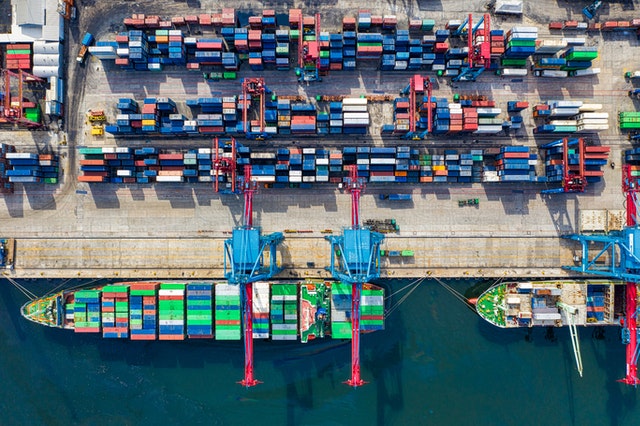Customs Bonds are fundamental to the world of global trading. To meet the CBP (U.S. Customs and Border Protection) customs clearance requirements for bringing goods into the U.S., importers must have a legally binding Customs Bond in place. No Bond? No clearance!
Who Needs a Customs Bond?
If you’re importing commercial goods valued at more than $2,500 and over $250 for Chinese goods, you need a Customs Bond. No matter how you are importing – land, sea, or air, the Bond must still be in place. Even if your merchandise is less than the value mentioned, you might need a Bond if they fall under government agency obligations, such as food products (FDA). Without the Bond, the CBP will deny entry of your merchandise.
Why Do You Need a Customs Bond?
The Bond is used by the CBP for many purposes, and meeting their stipulations helps importers pay dues on time to avoid clearance delays and penalties. In addition, the Bond commits importers to pay import duties, taxes, and fees. In essence, the Customs Bonds is a business contract between the Obligee (CBP), the IOR/Principal/Importer (Importer of Record), and the insurance company hired by the IOR (Surety). All parties agree to meet CBP financial requirements. If the Principal cannot fulfill their duties, the responsibility falls to the insurer.
The Bond is not an intentional burden on importers. In the words of the CBP: “The purpose of the Bond is to protect the revenue and ensure compliance. Examples include redelivery of merchandise, marking, proper record-keeping, etc. However, it is not Custom’s intent to require bond amounts that unnecessarily burden a person or firm or place them in an impossible situation. The process of setting bond amounts is straightforward in most situations, but in others, judgment and discretion are necessary.”
Which Customs Bond Do I Need?
There are two primary Customs Bonds chosen by importers according to their business requirements. These are a Single Entry Bond and Continuous Bond. For example, an importer who regularly ships goods into the U.S. would most likely choose to purchase a Continuous Bond as it covers all consignments for an entire year until expiry. Continuous Bonds also manage valuable consignments that arrive from numerous ports of entry.
A Single-Entry Bond only covers one CBP transaction – be it the ISF or Entry Summary. If you import only a few times a year – or even once – this is probably a more financially sound option over annual coverage. However, if your business grows, you will eventually want to avoid the headache of taking out a bond and meeting CBP requirements on every single import. So, for regular importers, a Continuous Bond ensures the most ROI and avoids repeated bond processes. Once a Continuous Bond is filed, it remains on file with the CBP until termination. Another plus is that this Bond also covers the CBP’s ISF Bond required for ocean shipments.
After receiving the first Continuous Customs Bond, remember that it must be renewed annually on the initiated date. Also, having to restart the Bond gives the Importer and Surety a chance to review it and decide if any adjustments should be made.
Frequently Asked Questions
Seasoned importers know the answers to many issues regarding Customs Bonds. However, others may not. Here are some FAQs:
How Does One Apply for a U.S. Customs Bond?
Applying for a CBP (U.S. Customs) Bond is simple. Fill out the application and submit it electronically to the Surety before the existing Bond’s effective date (if you already have a bond in place). The new effective date stays the same and makes no changes to your importer practices.
How Long Does It Take for a Continuous Bond to Be Usable?
The bond purchase process takes about 5 business days. This reason is that the application must be reviewed and meet the Surety requirements. Sometimes the Surety reviews the application and asks for additional financial guarantees such as collateral. This may cause additional delays.
What Does “Termination” of a CBP Bond Mean?
Bond termination means that the duration of the Bond has ended. Therefore, no additional obligation can be demanded against that Bond for new transactions. However, bond termination does not affect obligations that occurred under any trade before the date of termination. A bond may be terminated by the surety or the Principal, and appropriate notifications must be given to the CBP. A notice of termination requires at least 15 days prior notice to be considered adequate.
What Are Anti-Dumping (AD) & Countervailing (CV) Duties?
Dumping occurs when foreign manufacturers sell goods in the U.S. at less than their fair value and thereby injuring U.S. industry. AD cases are company-specific, and their duties are calculated to bridge the gap back to a fair market value.
CVD cases are established when a foreign government provides manufacturers exporting to the U.S. with subsidies and assistance. As a result, the manufacturers are able to sell the goods cheaper than domestic manufacturers. CVD cases are country-specific, and the duties are calculated to duplicate the value of the subsidy.
When either of these occurs, petitions are filed by U.S. manufacturers or businesses with the International Trade Commission (ITC). If the ITC finds evidence of injury to the U.S. industry, the Department of Commerce (DOC) investigates. If the results are positive, the CBP withholds liquidation of entries and collects AD/CVD duties. However, the entries are not liquidated until the DOC instructs CBP headquarters to do so.
Note that with commodities that are subjected to AD-CV, the Surety will likely ask for collateral or another financial indemnity agreement.
Digital Solutions for Customs Bonds
Digital technology helps businesses in all industries accelerate their processes, competitive advantage, and bottom-line results. For importers, this is essential. eezyimport offers an easy-to-use online customs clearance solution for importers to navigate this challenging arena independently, thereby cutting costs.
The eezyimport online portal allows importers to become self-filers quickly. By eliminating agents, import costs are lower. eezyimport also offers a practical DIY self-filing module (ISF or Entry Filing by yourself) or a DIY Broker module. In addition, the platform provides competitively priced Single-Entry and Continuous Customs Bonds. Thus, the company helps businesses by making the import procedure cost-effective and straightforward!
Get in touch, and let’s discuss your success!





